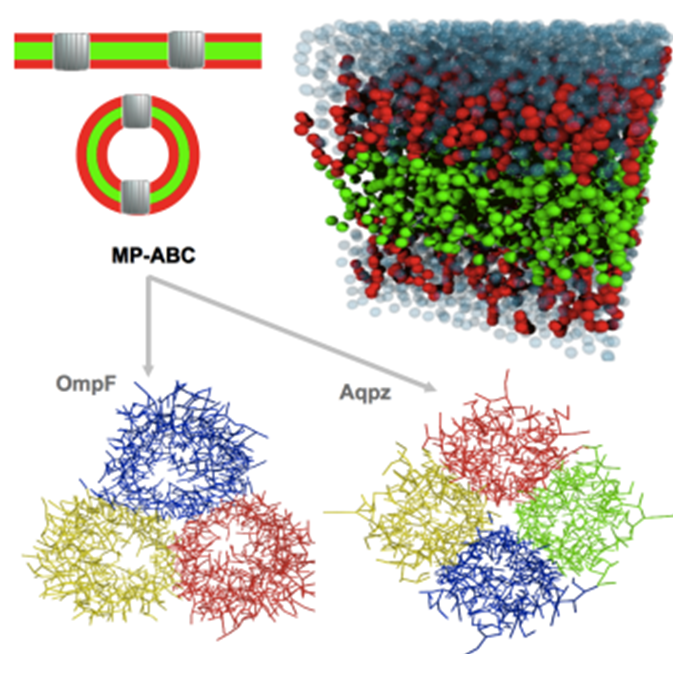Ben Schantz, Margaret Kowalik
Co-advised by Manish Kumar
Desalination has become an increasingly important way to provide potable water in dry or populous coastal regions. Membranes employing trans-membrane channel proteins could be substantially more permeable than current reverse-osmosis membranes, and achieve the same flux with less energy input. Bilayers created through self-assembly of block copolymers can incorporate these proteins and become efficient reverse-osmosis membranes.
Neutron scattering is used in conjunction with coarse-grained molecular dynamics to study the properties of these novel membranes. Neutron scattering can measure amphiphile block dimensions, probe polymer-protein aggregation kinetics, and corroborate coarse-grained simulation results.



